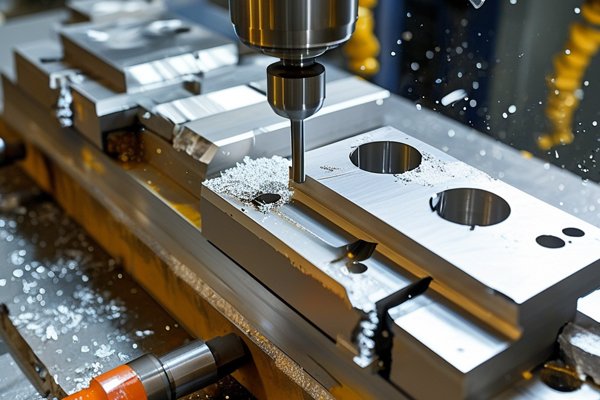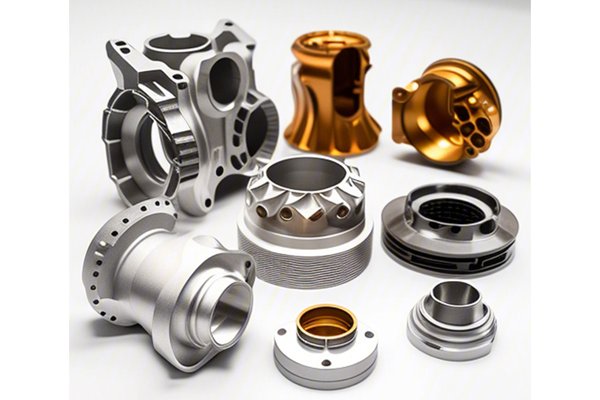When it comes to manufacturing and engineering projects, finding the right CNC (Computer Numerical Control) machining supplier can feel a bit like navigating a stormy sea without a compass. With so many options available, how do you identify a supplier who can deliver precision, quality, and reliability? Don’t worry! In this comprehensive guide, we’ll break down everything you need to know to make an informed decision. With insights, tips, and helpful questions to consider, you’ll soon find yourself with the confidence to choose the CNC supplier that’s just right for your needs. So, grab a cup of coffee, and let’s dive in!
Understanding CNC Machining: The Backbone of Modern Manufacturing
Before we get into the nitty-gritty of selecting a supplier, let’s first explore what CNC machining actually is. Imagine a highly skilled artisan, meticulously crafting intricate designs. Now, multiply that precision by a thousand and add the power of computers. Voila! You have CNC machining. This technology uses computer-controlled equipment to shape materials like metals, plastics, and composites with impressive accuracy. It’s widely used across various industries, including aerospace, automotive, medical, and more.
Why Is Choosing the Right Supplier So Important?
Imagine receiving parts that don’t fit together or meet your specifications—frustrating, right? The right CNC machining supplier can make all the difference in ensuring your project runs smoothly and on time. An unreliable supplier might lead to delays, increased costs, and ultimately, a headache for you and your team. By selecting a reputable CNC supplier, you’ll enjoy:
Key Factors to Consider When Choosing a CNC Machining Supplier
Now that we understand the importance of selecting the right CNC machining supplier, let’s discuss the core factors you should consider during your search. These criteria can serve as your compass, helping you navigate through the options available to you.
Experience and Expertise
One of the most crucial aspects to assess is the supplier’s experience and expertise in the industry. Look for a supplier with a proven track record in CNC machining, especially in your specific area of interest. Ask questions like:
A seasoned supplier will not only provide better results but will also be able to troubleshoot any potential challenges that may arise throughout the project.
Range of Services Offered
Not all CNC machining suppliers offer the same services. Some might specialize in certain techniques, while others provide a more extensive array of capabilities:
Having a supplier that can cover a wide range of services will save you the hassle of finding multiple vendors and facilitates better communication.
Quality Control Measures
With CNC machining, precision is paramount. Therefore, it is essential to inquire about the supplier’s quality control measures:
A reliable supplier will prioritize quality assurance and be transparent about their processes.
Technology and Equipment
The technology and machinery used by a supplier can significantly impact the quality of the finished product. Research the following:
A state-of-the-art facility with cutting-edge technology will likely yield better results.
Customer Reviews and Testimonials
There’s no better way to gauge a supplier’s reputation than by hearing from their previous clients. Look for reviews, testimonials, or case studies that provide insight into their work. Consider asking these questions:
Positive reviews can be a good indicator of a supplier’s reliability and quality of service.
Communication and Support
Effective communication is the backbone of any successful partnership. When choosing a CNC supplier, consider their communication style:
A responsive and supportive supplier can significantly enhance your overall experience.
Pricing and Delivery Terms
While cost should not be the sole factor in your decision, it’s important to have a clear understanding of pricing structures and delivery terms. Ask yourself:
Ensure that you’re not sacrificing quality for a lower price. Balancing cost, quality, and delivery reliability will help you make a sound decision.
Questions to Ask Potential CNC Machining Suppliers
Engaging with potential suppliers will give you further insight into their capabilities and reliability. Here are some questions to guide your discussion:
Open communication can reveal a lot about their operational style and overall professionalism.
Building a Partnership: The Importance of Collaboration
Once you’ve selected a CNC machining supplier, remember that your relationship with them should be a partnership rather than a mere transaction. Collaborative efforts can enhance project outcomes. Share your goals, expectations, and feedback openly to cultivate a productive relationship. Your supplier can offer valuable insights and suggestions to improve efficiency and quality.
Conclusion: Making Your Choice
Choosing a reliable CNC machining supplier might feel overwhelming at first, but with the right approach and framework, you can make a confident choice. By assessing their experience, quality assurance practices, technology, and customer feedback, you’ll be well-equipped to find a partner that can fulfill your project’s needs while exceeding expectations.
As you embark on this quest, keep in mind that the right CNC machining supplier can transform your project from a turbulent wave to a smooth sail. So take your time, ask the right questions, and choose wisely! The rewards of a successful partnership will not only lead to high-quality results but also an exciting journey in the world of CNC machining. Happy manufacturing!
—






